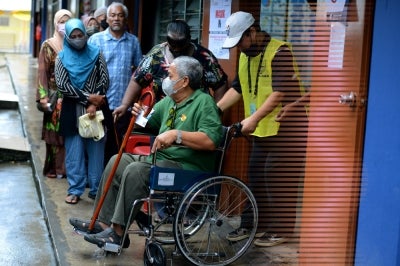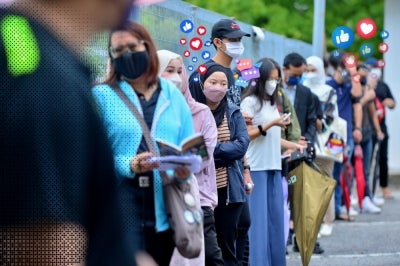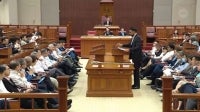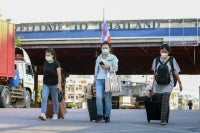Recapping 2022's politically tumultuous tug-of-war
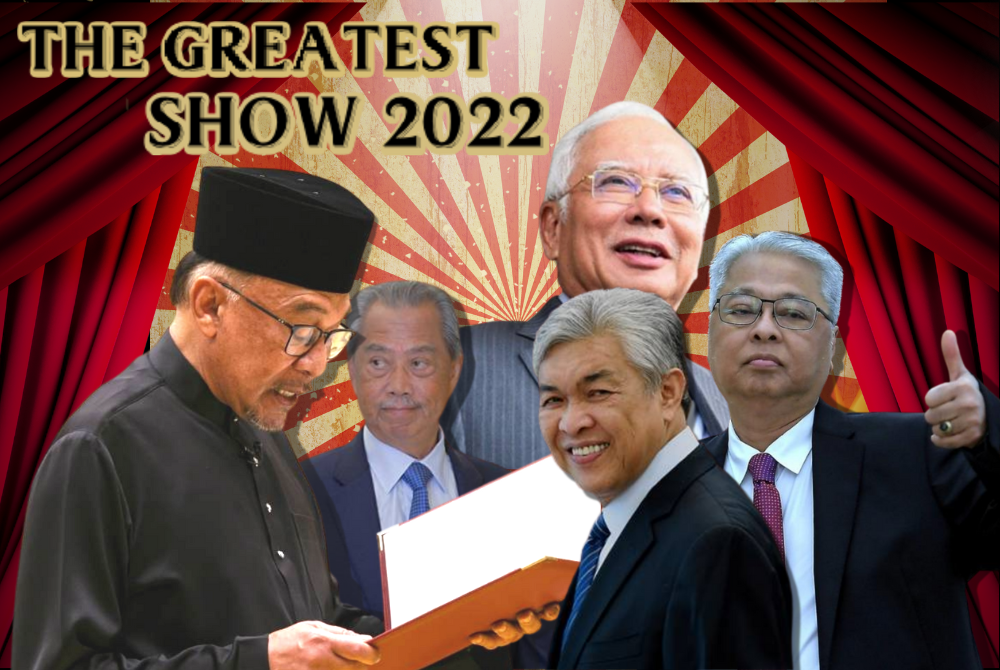
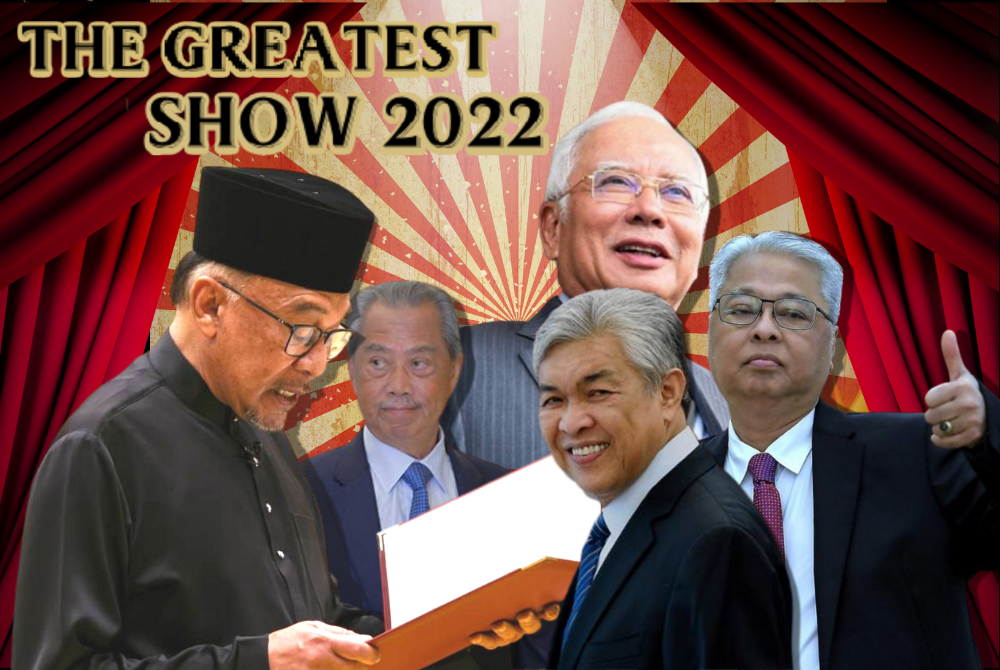
The politics in 2022 was pretty much business as usual, where it was essentially a continuation of last year’s – and the year before – ceaseless bid for power.
Emboldened and invigorated from their electoral triumph in the Melaka poll, Barisan Nasional (BN) staged yet another maneuver for a state election in Johor in January.
The reason?
Simple, the death of Kempas assemblyman, Osman Sapian from Pribumi Bersatu, resulted in the ruling bloc hanging on a tightrope.
The then-equation was as follows: BN + Pribumi Bersatu have 28 seats whereas Pakatan Harapan has 27.
And so, on January 22, Johor ruler, Sultan Ibrahim Iskandar, assented to Menteri Besar Datuk Hasni Mohammad’s request to dissolve the state assembly.
The D-day for Johor polls was announced in the following month, specifically on February 9, with the Election Commission fixing the state election date on March 12.
Five days after the announcement, Health Minister Khairy Jamaluddin made headlines after he fined several BN leaders for breach of Covid-19 SOPs during an event related to the Johor state poll.
The leaders slapped with the compound were: Senior Defence Minister Datuk Seri Hishammuddin Hussein, Johor BN state chief Datuk Hasni Mohammad and MIC President Tan Sri S. A. Vigneswaran.
However, such breach of conduct did nothing to dent BN’s popularity and political prowess, as on March 12, the coalition cruised to victory in the Johor polls, securing a resolute two-third majority.
Almost seemingly on-cue, BN’s landslide victory began to generate faint calls for a general election to be held in the nearest future, but the noises had inadvertently taken a back seat in the succeeding month.
It was so as former Umno president Datuk Seri Najib Razak and PKR president Datuk Seri Anwar Ibrahim dominated the news with their war-of-words over the Sapura Energy controversy.
Initially, however, Anwar was not in the picture as the controversy was brought to limelight by PKR vice-president Rafizi Ramli who challenged Najib to a debate which the latter accepted on April 3.
To the uninitiated, Sapura Energy – a government-linked company (GLC) – had announced a loss of RM8.9 billion last year, which Najib said was the largest for any Malaysian GLC in history.
Najib has been pushing for a bailout of the company, while Rafizi is against the idea.
As the politically charged Sapura drama was going back and forth, Muslims worldwide were observing the Holy Month of Ramadhan – which was also the reason the Najib-Anwar debate was postponed in later May.
On May 12; the highly anticipated Najib-Anwar debate finally took place.
The debate, which began on the right path – the fate of Sapura Energy – started to veer into other national issues, the economy, governance, and the way forward for the country.
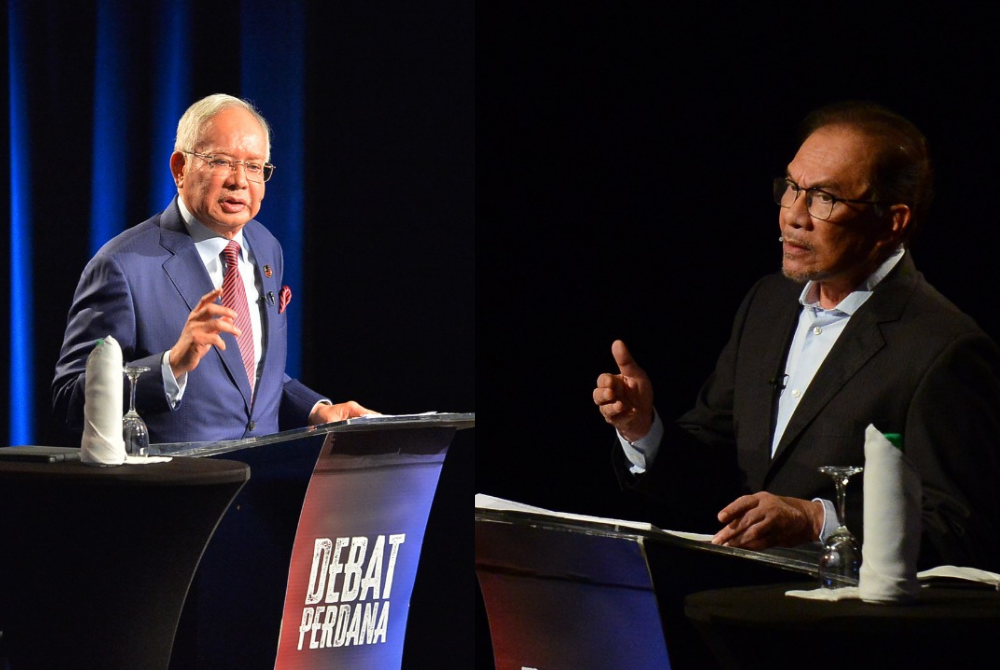
Naturally, the discourse ended up becoming a verbal tiff with the duo dishing out political rhetoric and, of course, the occasional pot-shots at Tun Dr Mahathir Mohamad who has nothing to do with the debate.
Oh yeah, Anwar also said something about ‘cakes’ but obviously the context was unrelated to pastries.
It was only on June 1 that the call for a nationwide snap poll was vociferously shouted about and the person leading the fray was Umno president Datuk Seri Ahmad Zahid Hamidi.
“I want to see how many of you support this call?” he said to rapturous applause at the-then BN convention.
“The prime minister has said he will discuss this with Umno’s top five. PM, we trust you, do it as soon as possible. PM, we are ready to face the general election,” Zahid added.
His remark comes just a day after Prime Minister Datuk Seri Ismail Sabri Yaakob hinted that the election might not be held anytime soon, citing inflation and the rising cost of living.
Six days afterwards, on June 6, the Yang di-Pertuan Agong, urged all political issues to be resolved immediately, to prevent the country from facing a confidence deficit that could affect its image.
Ismail Sabri, however, did not immediately respond to Zahid’s call for a general election to be held soon, choosing to publicise his contrarian view only on July 27 – which was a day before the anti-party hopping law get passed in the Dewan Rakyat.
“I am in no rush to call for snap polls,” he told the press at a National Higher Education Fund event in the heart of Kuala Lumpur.
Surprisingly, on July 28, the anti-party hopping law was passed with an overwhelming bi-partisan support in Parliament, securing a two-third majority.
Najib had once again taken centre stage on August 23 where he lost his final appeal and was sent to the Kajang Prison.
The Federal Court upheld Najib ‘s conviction and sentence for the misappropriation of RM42 million in SRC International funds, dealing a major blow to the former prime minister's future some four years after his fall from power.
"The defence is so inherently inconsistent and incredible that it has not raised reasonable doubt on the case," said Chief Justice Tengku Maimun Tuan Mat who led the five-man bench presiding over Najib’s court case.
After the furore over Najib’s imprisonment eventually subsided, Ismail Sabri had on September 23 took centre stage when he delivered his keynote speech at the United Nations General Assembly in Malay.
While supporters tipped their hats off to Ismail Sabri who stayed true to his mission of promoting the Malay language, critics downplayed the optics, needling on the fact that there were hardly any prominent figures who listened to his speech.
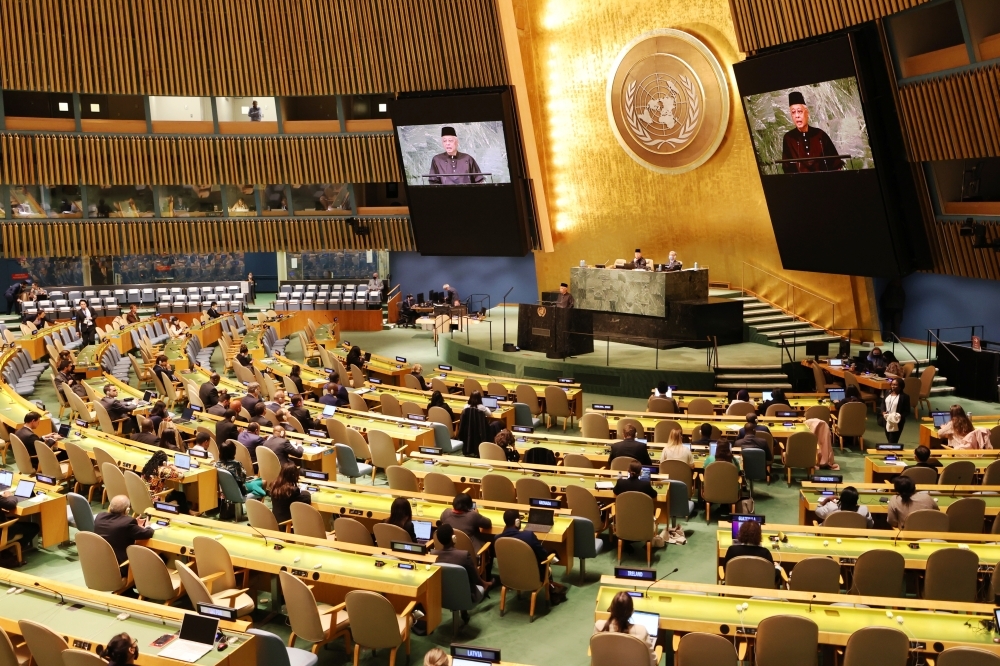
After months of mounting pressure, Ismail Sabri finally relented and dissolved the Dewan Rakyat on October 10, paving the way for the country’s 15th General Election (GE15), just three days after his government tabled the Budget 2022.
Angered and offended due to not being named as a GE15 candidate, Umno warlord Datuk Seri Shahidan Kassim defected to Perikatan Nasional (PN) on November 3 in a bid to defend his incumbent parliamentary seat of Arau.
The political hype and excitement of the year 2022 peaked on November 19, where GE15 ended in a hung parliament as not a single party managed to secure the needed simple majority to form government.
PH won 81 seats followed by PN: 74; BN: 30; Gabungan Parti Sarawak (GPS): 23; Gabungan Rakyat Sabah (GRS): 6 and a total of eight seats were won by others.
While PN chairman Tan Sri Muhyiddin Yassin initially claimed that he had forged the needed alliance to form government this was eventually debunked and after five days of limbo, PH’s Anwar was officially sworn in as PM on November 24.
Anwar rise to PM was made possible with BN’s backing, which in itself was controversial because many in the coalition initially denounced the decision by BN chairman Datuk Seri Ahmad Zahid Hamidi, particularly Umno leaders who claimed that Zahid had betrayed the party’s resolution to not ally itself with Anwar and DAP.
On a side note, the biggest upset was probably Tun Dr Mahathir Mohamad's botched electoral bid, in which he not only failed to defend his incumbent parliamentary seat of Langkawi but had also lost his deposit.
What a double whammy.
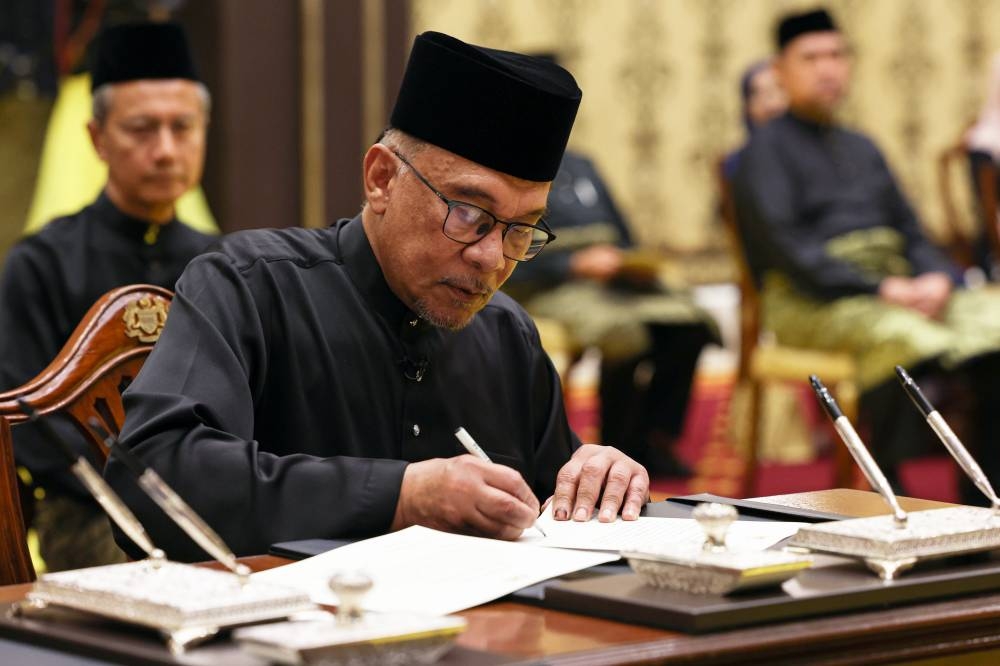
In terms of Cabinet formation, it took Anwar eight days – December 2 – to announce his Cabinet line-up which saw the return of Umno president Datuk Seri Ahmad Zahid Hamidi as Deputy Prime Minister – a portfolio he once held when Najib was PM.
True to his assurance, Anwar’s Cabinet was smaller, with only 28 ministers compared to the previous two administrations – Muhyiddin’s and Ismail Sabri’s – which have 32 ministers.
A week afterwards, on December 9, Anwar announced the remaining deputies of his administration.
Five days onwards, the Anwar administration had, on December 14, decided to sack all existing political appointees and directors in federal statutory bodies, Ministry of Finance (Inc) firms, government-linked corporations (GLCs), and government-linked investment companies (GLICs).
The move appeared to be a part of Anwar's sweeping changes to the administration.
He had previously announced some shake-ups in the government, including ending the practice of rewarding members of parliament with cabinet positions in exchange for their support.
However, on December 21, Anwar pulled an ‘um, actually’ in a bid to stifle criticisms leveled against his administration after Zahid appointed former Machang MP Datuk Ahmad Jazlan Yaakub (of Umno’s) as Felcra Chairman.
Anwar now said that there was no issue for politicians to be appointed into such positions, but such appointments must be in accordance with good governance.
“I want to explain that political figures or MPs may be appointed but we will consider the individual’s professional capabilities and past performance, as well as compliance with regulations and principles of good governance,” he said.
Fantastic. So technically, where political appointments are concerned, are we back to square one? Who knows?
But one thing for certain is that if this back-and-forth continues, perhaps next year’s politics will be business as usual -- which in Malaysian context means, anything but tepid.
Download Sinar Daily application.Click Here!




